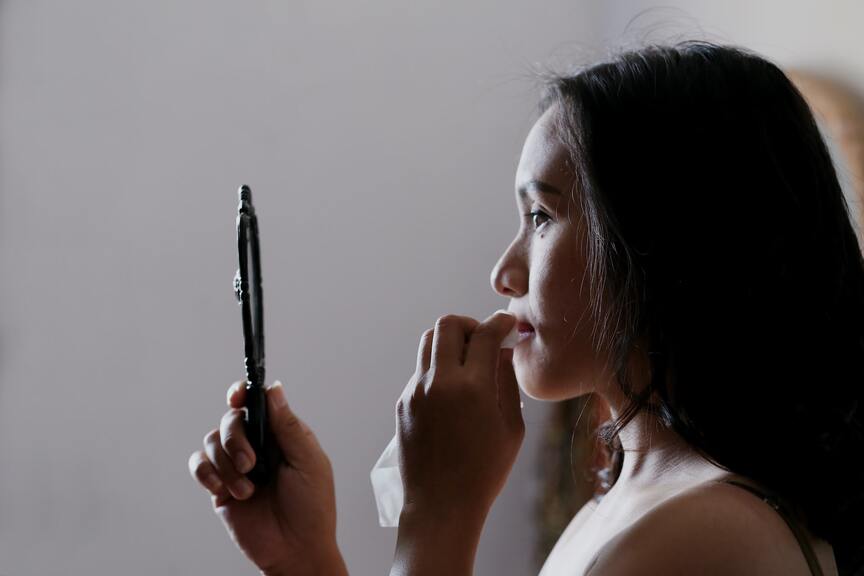Body Dysmorphic Disorder (BDD)
Body dysmorphia, otherwise known as body dysmorphic disorder (BDD) is an anxiety disorder that is similar to obsessive compulsive disorder (OCD). It centres around worries about body image and believing oneself to be flawed in ways that other people rarely notice.
What Is BDD?
The word dysmorphia comes from ancient Greek, meaning ‘misshapenness’ and ‘ugliness’. Thus, Body Dysmorphic Disorder is a mental health condition in which people worry a lot about their appearance, which leads to upset and difficulty in day to day life. Sufferers find it difficult to see people or go out in public. Because of this, BDD is highly disruptive for an individual’s relationships and therefore social, and work life.
People who experience body dysmorphia are not self-obsessed or vain but will often suffer alone with the anxiety disorder because they’re worried that people will judge them to be. The severity of the condition varies from one person to the next, and some days can be worse than others. The condition impacts women and men of all ages, but more often teenagers and young people.

Anxiety & Worry
Checking Or Avoiding
Sufferers often look in mirrors constantly, or avoid them altogether.
Concealing 'Flaws'
A lot of time and effort is spent to conceal perceived flaws by over brushing hair, using heavy make-up, spending time selecting what to wear, picking skin to smooth it out, using products to change skin colour, or wearing clothes to hide body shape.
Intrusive Thoughts & Worry
People who experience BDD will often have negative thoughts about a particular part of their face or body, or several areas. They will believe this area(s) is either disfigured, out of proportion, asymmetrical, or the wrong texture or colour.
Making Comparisons
It is not unusual for those who experience BDD to spend considerable time comparing themselves with others that they deem flawless. But this only serves to make them feel worse about themselves as a result.
Other Possible Symptoms
Alongside the symptoms listed, some people may have a habit of taking selfies and using airbrushing filters on apps, or deciding to have cosmetic procedures to ‘fix’ the area they’re concerned with.
Repetitive Compulsions
Due to the obsessive worries about appearance, sufferers may also partake in compulsive repetitive behaviours. These include: over exercising, body-checking, weighing, shopping for beauty treatments, and mirror checking.
Seeking Reassurance
People with BDD will often ask close others about their appearance in the hopes of reassurance.
What Causes BDD?
It is unknown what causes BDD but research suggests certain factors create a higher risk of developing it. For example, if someone in your family experienced BDD, you may be at more risk of developing it, possibly due to genetic inheritance, learned behaviour, or both.
Low self-esteem: especially if your value is derived from your appearance, or if you have experienced judgement or discrimination based on your appearance (for example, due to racism, body-shaming).
Bullying or abuse: the trauma of these can develop into an obsessive negative self-image. This is especially true if the abuse or bullying happened during the teenage years, when adolescents are sensitive about ongoing body changes.
Comparisons and perfectionism: we are always surrounded by unrealistic beauty ideals which confer feelings of inadequacy and unattainable goals. Making comparisons with these ideals and striving to be ‘perfect’ are risk factors for the development of BDD, especially if your job is centred on your body image (such as modelling, acting, bodybuilding, etc).
A fear of rejection: if you have concerns about being rejected and abandoned based on your appearance, you may develop BDD as a way to ensure you fit in.
There is evidence to suggest people who experience other mental health conditions like anxiety, depression, and OCD are at greater risk of developing BDD. Although it is unknown whether such conditions cause BDD, or are caused by it.
How Phinity Can Help
At Phinity we will offer you a thorough psychological assessment to understand your specific symptoms and how these impact your life quality. This will also provide understanding of your goals for therapy and the kinds of therapies that would be of most benefit to you.
For example, your therapist may recommend cognitive behavioural therapy (CBT), a more practical and strategy oriented approach. This will help you to identify the thoughts that impact your feelings, and behaviours, and how you can learn ways to manage and take control of your behaviours, such that your thoughts and feelings are altered in a more helpful direction.
We also offer other approaches as shown below, which can help you to explore your worries about your body-image and develop a healthier attitude toward your appearance so that you can reduce intrusive thoughts and compulsions that make you feel out of control.
We may also offer an integrated approach, whereby more than one therapeutic approach is used. You do not need to worry about this, as we will always offer recommendations that are tailored around the initial assessment, and your needs and goals.
What Causes BDD?How Phinity Can HelpClients' Common Questions
- NHS. (2021, February 10). Body dysmorphic disorder (BDD). Nhs.uk. https://www.nhs.uk/mental-health/conditions/body-dysmorphia
Stay updated with the latest in mental health through our newsletters. Get valuable tips, hacks, and videos. Explore insightful mental health blogs. Enjoy special offers and be the first to know about new psychotherapy products and services.







